“Cries of fear are heard – terror, not peace” Jeremiah 30
US Congressman Scott Perry recently dropped a bombshell, alleging that the United States Agency for International Development (USAID) has been indirectly funding terrorist organizations, including the notorious Boko Haram. This explosive claim has sparked widespread concern and prompted calls for a thorough investigation. Korede Abdullah, Africa Health Report writes on the implications of the claim.
Boko Haram Remains a Threat
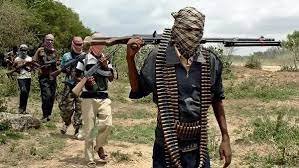
Boko Haram remains a major security threat in Nigeria, with its violent insurgency causing widespread instability and loss of life. One of the key challenges in combating the group is understanding its financial networks, which allow it to sustain operations.
There have been allegations that Boko Haram receives funding from various sources, including international aid organizations, though these claims are often difficult to verify. Security analysts emphasize that tracking the group’s financial activities is crucial in dismantling its operations and preventing further attacks.
Experts point out that Boko Haram’s financial support comes from a mix of illicit activities and external contributions. The group is known to engage in extortion, smuggling, and the illicit trade of goods, including weapons and drugs.
Kidnappings for ransom have also been a lucrative source of income, with both local individuals and foreign nationals being targeted. Additionally, reports suggest that foreign donations, sometimes channelled through sympathizers or shadow networks, contribute to the group’s war chest.
Analysts also say that understanding and cutting off these financial lifelines is essential for weakening Boko Haram’s capabilities and restoring stability in the region.
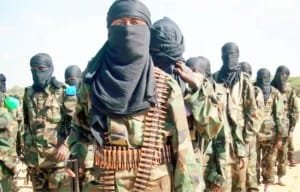
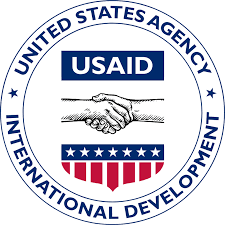
USAID Terror Funding Claim Coming Late – Ex-CAN President
Former President of the Christian Association of Nigeria (CAN), Rev Samson Ayokunle also on Friday expressed his concerns over the allegations made by US Congressman Scott Perry, claiming that the US Agency for International Development (USAID) funded terrorist organisations, including Boko Haram.
Ayokunle described the claim as belated, questioning why the international community, especially the US Congress, is only coming out with this information now. “If they knew this truth a long time ago, why are they coming out now? Is it not almost too late?” he asked.
He recalled how CAN had previously raised alarms about terrorist organisations in Nigeria having foreign sponsors, but were misinterpreted. “Now, it is coming out. USAID is now alleged to be behind the sponsorship of Boko Haram in Nigeria,” he said.
US Ambassador Denies Accusations
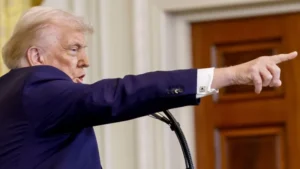
Africa Health Report (AHR) earlier reported that the United States had broken its silence on allegations that the United States Agency for International Development (USAID) is sponsoring Boko Haram.
US Ambassador to Nigeria, Richard Mills, stated on Wednesday that there is no evidence to support these claims, emphasizing that “there is no friend of Nigeria stronger in condemning Boko Haram’s violence and disregard for human life than the United States”.

Mills assured that if any evidence is found, the US government will work with the Nigerian government to investigate it. The allegations surfaced after Congressman Scott Perry accused USAID of funding terrorist groups, including Boko Haram, during a hearing on government efficiency.
Perry claimed that USAID funds were being diverted to terrorist groups, stating, “Who gets some of that money?… $697 million annually, plus the shipments of cash funds in Madrasas, ISIS, Al-Qaeda, Boko Haram, ISIS Khorasan, terrorist training camps. That’s what it’s funding”.
The US Ambassador, however, maintained that the US has strict policies in place to prevent USAID funding from being diverted to terrorist groups.
Mills also discussed the US-Nigerian relationship, outlining four key priorities for the future: improving the business environment, increasing transparency and accountability, engaging at the subnational level, and ensuring the sustainability of health programs.
He emphasized that the US aims to create a stronger healthcare future for Nigeria by transitioning successful health programs to the Nigerian government.
Ali Ndume Calls for Investigation
Despite this dismissal, Nigerian Senator Ali Ndume has called on the Federal Government to investigate the claim. He stressed the importance of thoroughly examining the issue to ensure that no funding, intentional or otherwise, is reaching the terrorist group.

“We cannot afford to overlook any possibility, no matter how remote, of funding reaching Boko Haram from unexpected sources,” Ndume stated during a press briefing.
The controversy has fueled debate in both the U.S. and Nigeria, with officials weighing the credibility of the allegations. While the U.S. government has denied any involvement, Ndume’s call for an investigation suggests that Nigerian authorities may pursue further scrutiny.
The National Assembly Launches Investigation
Nigeria’s Parliament has launched an investigation into allegations that the United States Agency for International Development (USAID) indirectly funded terrorist organizations, including Boko Haram.
The probe comes after US Congressman Scott Perry made the shocking claims, prompting widespread concern and outrage ¹. The Nigerian Senate has summoned top security chiefs, including National Security Adviser Nuhu Ribadu, to provide detailed briefings on the matter.
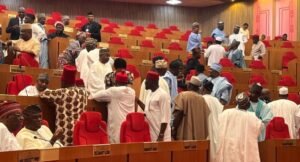
The House of Representatives is also establishing a special committee to investigate the funding sources and activities of non-governmental organizations (NGOs) operating in Nigeria.
Representative Inuwa Garba emphasized the gravity of the situation, stating that if the allegations are true, they pose significant national and international security concerns.
The investigation aims to uncover any potential financial links between NGOs and terrorist groups, and to determine the appropriate course of action.
The Group’s Lucrative Business Model
Boko Haram’s financial operations in Nigeria are deeply rooted in extortion, allowing the group to sustain its activities by preying on local communities. They impose illegal taxes on farmers, fishermen, and traders living in areas under their control, forcing them to hand over a portion of their earnings.
This system of coercion has created a parallel economy in which Boko Haram dictates financial flows through threats and violence.
“Boko Haram has created a shadow economy, leveraging violence to extract resources,” explains Dr. Audu Bulama Bukarti, a senior analyst at the Tony Blair Institute for Global Change. Their ability to enforce these illicit taxes has made them a dominant force in the regions they occupy.
In addition to extortion, Boko Haram has developed kidnapping into a highly profitable enterprise. The group abducts people from all walks of life, from vulnerable schoolchildren to influential politicians and foreign nationals, holding them for ransom.
Security expert Kabiru Adamu highlights the scale of this operation: “From schoolchildren to high-profile politicians and foreign nationals, Boko Haram has made kidnapping a multimillion-dollar industry, often negotiating ransoms that run into hundreds of thousands of dollars.”
These funds are then funneled back into the group’s operations, financing weapons, recruitment, and further attacks.
The combination of extortion and kidnapping has allowed Boko Haram to sustain its insurgency despite military efforts to weaken them. By exploiting local economies and instilling fear, they maintain a grip on communities and ensure a steady flow of revenue.
Their financial tactics not only destabilize the regions they control but also present a major challenge to counterterrorism efforts in Nigeria. The persistence of these funding strategies highlights the difficulty of eradicating the group and restoring security to affected areas.
Illicit Trade: A Lifeline for Boko Haram
Boko Haram’s economic influence extends deep into Nigeria’s informal trade networks, where it leverages control over critical supply chains. In addition to direct extortion, the group exploits traders who rely on smuggling routes to move goods across borders, particularly in the Lake Chad region.
Dried fish from Borno State, cattle from surrounding areas, and red pepper cultivated in the northeast are among the key commodities trafficked under Boko Haram’s watch. By embedding itself within these commercial activities, the group not only funds its operations but also tightens its grip on local economies.
“The fishing industry in Baga, for example, is largely controlled by Boko Haram, with traders forced to pay fees to the group before conducting any business,” explains Auwal Musa Rafsanjani, head of Transparency International in Nigeria.
Africa Health Report (AHR) findings show that Boko Haram’s illicit trade operations generate tens of millions of dollars annually, allowing the group to purchase weapons, pay fighters, and sustain its insurgency. Security analysts warn that as long as Boko Haram maintains access to these revenue streams, military operations alone will not be enough to dismantle its influence.
Despite efforts by Nigerian authorities and international partners to curb terrorist financing, Boko Haram continues to adapt its strategies. “They use middlemen and informal money transfer systems to move funds, making it difficult for authorities to track transactions,” says security expert Bulama Bukarti.
Additionally, corruption within regulatory agencies allows the group to operate with limited interference. Analysts emphasize the need for a multifaceted approach that combines military action with economic policies aimed at disrupting Boko Haram’s financial networks. Without addressing these economic lifelines, the group’s resilience will likely persist.
Foreign Donations: An International Web of Support
Boko Haram’s early financial ties to international jihadist networks played a crucial role in shaping its long-term capabilities. Osama bin Laden’s reported allocation of $3 million to Nigerian militant groups sympathetic to al-Qaeda’s ideology laid the foundation for Boko Haram’s expansion.
“The early funding from bin Laden provided Boko Haram with the resources to expand its operations, recruit fighters, and acquire weapons,” explains Jacob Zenn, an Africa security analyst at The Jamestown Foundation.
This financial boost allowed the group to evolve from a fringe religious movement into a formidable insurgency, launching increasingly sophisticated attacks against Nigerian security forces and civilians.
Even as Boko Haram became self-sustaining through extortion and trade, foreign funding sources remained a concern. Intelligence reports suggest that private donors from the Middle East, as well as Boko Haram supporters within the Nigerian diaspora, have continued to funnel money into the group.
These transactions are often disguised as humanitarian aid or routed through charities sympathetic to extremist causes. “Boko Haram has adapted by using informal networks like hawala, which allow for anonymous and untraceable financial transfers,” says a senior Nigerian counterterrorism official who prefers to remain anonymous. This financial opacity makes it challenging for authorities to cut off the group’s external funding streams.
To counter these financial flows, Nigerian authorities and international partners have intensified efforts to track suspicious transactions and sanction individuals linked to terrorist financing. However, the effectiveness of these measures is limited by corruption and gaps in financial oversight.
“As long as donors can exploit weak regulatory systems, Boko Haram will find ways to access external funding,” warns Jacob Zenn. Experts emphasize that dismantling Boko Haram’s financial networks requires not only stronger enforcement but also international cooperation to prevent illicit funds from reaching the group.
The Politics of Foreign Aid: A Double-Edged Sword
Foreign aid remains a contentious topic in Nigeria, where millions of people, particularly in the northeast, rely on humanitarian assistance due to the prolonged Boko Haram insurgency. While aid is crucial for food security, healthcare, and shelter, concerns persist about its long-term implications.
Senator Ali Ndume has been vocal about the risks of dependency, urging the government to prioritize national security and economic self-sufficiency. “The fact that we continue to depend on aid from other countries is problematic. Nigeria must focus on self-reliance and strengthen internal security measures,” he said.
Ndume argues that while foreign aid provides short-term relief, it does not address the root causes of insecurity and economic instability.
Beyond dependency concerns, security analysts warn of the potential misuse of aid, particularly in conflict zones where armed groups operate. Dr. Murtala Ahmed Rufa’i, a conflict analyst, highlights the risk of aid being siphoned off or exploited by insurgents.
“Terror groups often manipulate aid distribution networks, either by taxing aid deliveries or infiltrating local humanitarian organizations,” he explains. These tactics allow militants to sustain their operations, undermining both security efforts and the well-being of displaced persons.
In some cases, insurgents impose levies on humanitarian agencies or hijack food and medical supplies before they reach the intended beneficiaries.
To mitigate these risks, experts suggest stronger oversight mechanisms, increased collaboration between aid organizations and Nigerian security forces, and greater investment in local development programs.
Transparency in aid distribution is critical to ensuring that resources reach those in need rather than falling into the wrong hands. Additionally, fostering economic resilience through job creation and education can help reduce dependency on external aid over time.
As Nigeria grapples with these challenges, policymakers face the delicate task of balancing immediate humanitarian needs with long-term strategies for national stability and self-sufficiency.
Security Implications: The Need for a Holistic Approach
Understanding Boko Haram’s funding sources is crucial for developing effective counterterrorism strategies. Experts stress that cutting off financial flows requires collaboration between local authorities and international partners.
“Beyond military action, there must be a concerted effort to disrupt Boko Haram’s financial networks,” says Dr. Bukarti. “This includes monitoring money transfers, strengthening border controls, and working with regional governments to combat smuggling and illicit trade.”
A Complex Web of Financing
Boko Haram’s financial networks are extensive and deeply entrenched, involving extortion, illicit trade, kidnappings, and foreign sponsorship. Addressing these funding channels demands a comprehensive approach, combining law enforcement, intelligence sharing, and financial regulations.
As Uche Igwe, a Senior Political Economy Analyst, puts it: “Unmasking the criminal economy will not be enough. International cooperation is key to dismantling the financial and operational infrastructure that sustains Boko Haram.”



